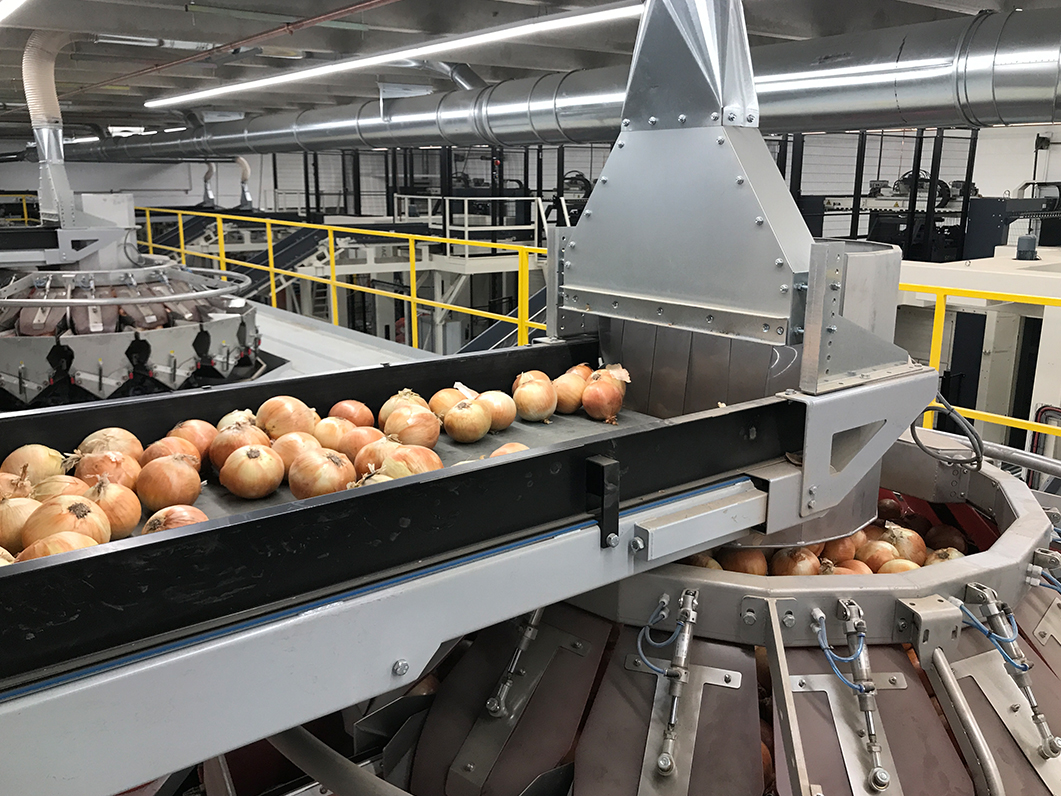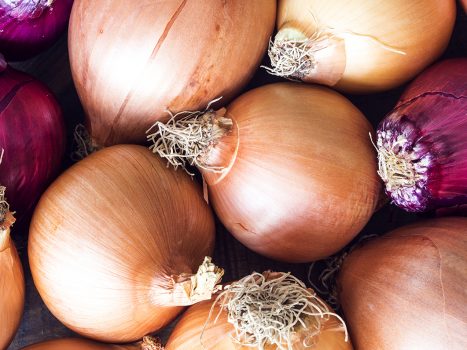We’ve added a new department to OnionBusiness.com this week! Tech News looks at the latest and greatest in technological advancements throughout our industry – from planting to packing and right on through to meeting the needs of the end consumer.
This week we’re reporting on tech news from Wisconsin and the Treasure Valley of Idaho-Eastern Oregon, along with some fascinating stuff happening on the world’s stage.
Cameron Skeen with Baker & Murakami Produce in Ontario, OR, said that company’s technology advancements have been significant, and Doug Bulgrin with Gumz Farms in Endeavor, WI, told us advancements both in the field and in the shed have resulted in more precision in planting along with increased capacity and efficiency after harvest.
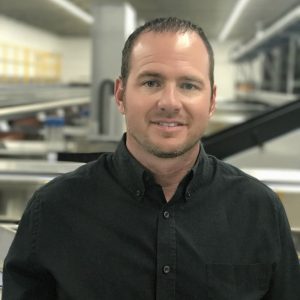
Cameron Skeen, Baker & Murakami Produce
Cameron said, “As has been well publicized, we invested in a fully automated packing line this season. Prior to this investment, we were two separate companies both working 8-12 hour shifts. Now we are one company working one 8-12 hour shift and packing the same volume of onions as before.”
He added, “It’s the full integration of all the automation that makes what we’ve done work.”
On the growing side, Cam said, “I don’t know what others are doing, but on my farming operation we continue to use GPS and gridding technology to its full potential along with drip irrigation and properly engineered designs to make our fields the most efficient as possible in all aspects. Recently I have been using real time data and analytics to aid in irrigation and fertility scheduling as well as usage.”
Last year, he said, “… we started using satellite imagery to monitor crop health along with any abnormalities throughout the growing season. We plan on using the satellite imagery along with the real time data to micro manage the crop the best we can throughout the season. All of these efforts are part of our long- term farm sustainability plan.”
Cam added, “I think the big focus this upcoming season will be how to better harness the technology so we can take it to a higher level. We are always looking for ways to improve what we have, while also keeping an eye to what may be to our benefit. We have tremendous momentum rolling as we finish out this season and we are looking to build on that momentum for the 2018 crop.”
And he said in the next three to five years more upgrades will be made. “Technology can change quickly and we want to make sure we are always on the front end of that curve. As a company we are continuously looking for ways to improve all aspects of our business so we can better serve our customers.”
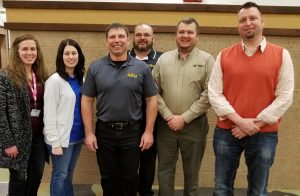
Gumz Farm team located in Endeavor, WI
From Wisconsin, Doug Bulgrin told us Gumz Farms has also been making big tech strides in recent years.
“Our automated bagging, filling and stocking equipment have increased our capacity as well as our responsiveness to orders,” Doug said this week. And like most of the industry, Doug said Gumz “continues to upgrade our systems to deal with higher labor costs.”
Field-to-fork efforts also include remote monitoring of irrigation and upgraded storages with automated guidance on equipment.
Doug said 2018 is bringing an updated planter for “better precision planting” with row shutoff, POP sensors, yield monitor with faster access to increased data.
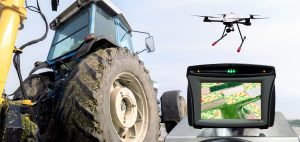
All that cool stuff specifically for onions is the perfect lead-in for really cool stuff for onions and other crops. Walmart has entered the arena “in a bid to compete with Amazon” and is filing for patents on farm drones. There’s a whole story by Eric Brackett dated March 17 and posted at https://www.digitaltrends.com/cool-tech/walmart-farming-drones/ which talks about the new tech. Brackett explains that the full details have been kept secret, but one of the drones is designed to pollinate crops, one is designed to keep pests at bay and a third is designed to monitor plant health.
The idea isn’t for Walmart to sell these high-tech toys at retail but rather to its partner farms to make them “more efficient.” It could mean higher prices… or it could mean reduced labor. Jury’s out.
There’s another story on the same topic of Walmart further explain its “robot bees.” This was written by Stephen Johnson and filed March 15 at http://bigthink.com/news/walmart-just-filed-a-patent-for-autonomous-robot-bees-amid-ongoing-battle-with-amazon. The pollination drones have been designed to use sensors to locate the crops, transport pollen and verify which crops have been successfully pollinated. Six patents for drone farming have been field by the retail giant.
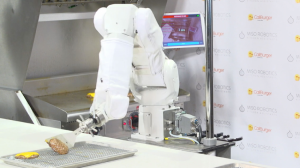
Flippy Burger, Foodservice Robot
If your jaw is on the floor now at the very thought, consider “Flippy The Fast Food Robot” that “(Sort Of) Mans The Grill At Caliburger.” This NPR story can be found at https://www.kqed.org/bayareabites/125452.
Maybe as a way to hold minimum wage’s feet to the fire or to avoid high employee turnover, Miso Robotics’ Flippy was hired on at Caliburger’s Pasadena restaurant as a “grill cook on the line.” Caliburger is an international chain run by Cali Group.
And Cali Group CEO John Miller acknowledged in the NPR piece that flippin’ burgers isn’t what could be described as a fun job. He called it hot. Greasy. Dirty.
Flippy, who started working at Caliburger two years ago, can grill 150 burgers an hour – all, presumably, without complaining, taking a bathroom/smoke/lunch/whatever break and without putting in for overtime or sick leave.
Hmmmmmm.
Feature image courtesy of Baker & Murakami Produce Company

